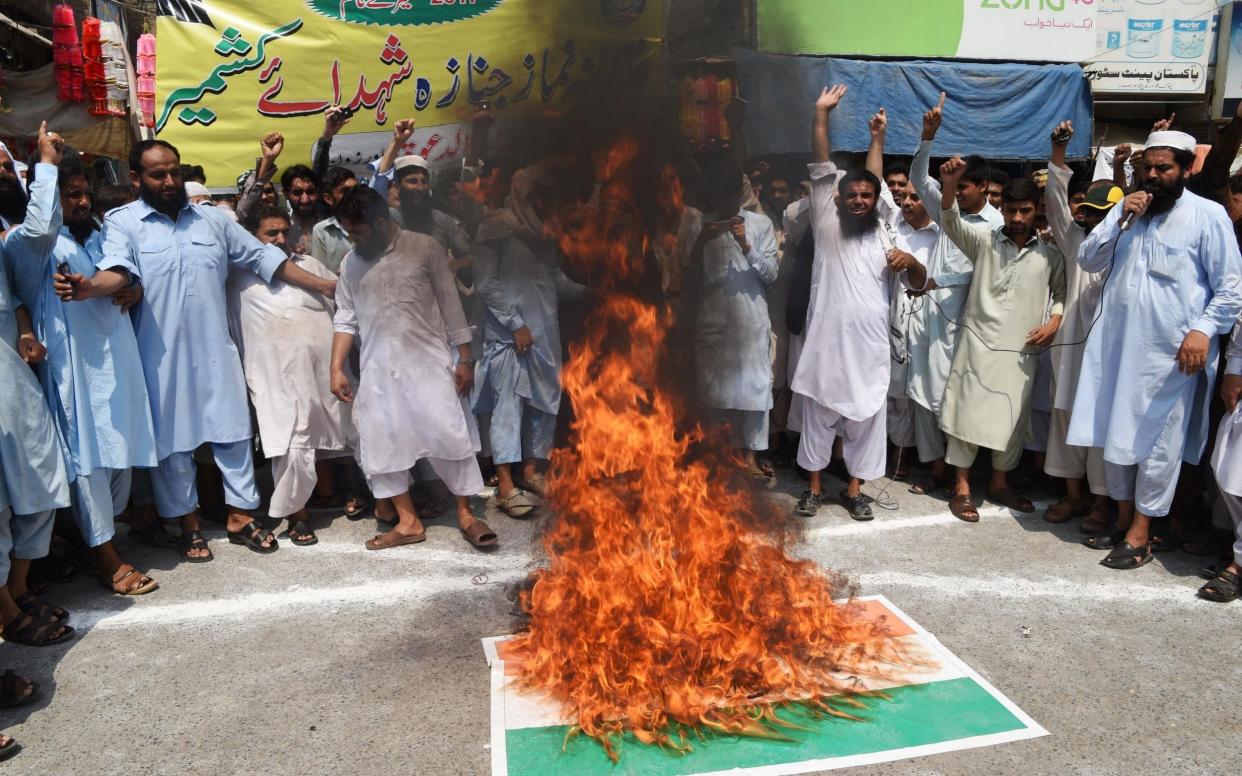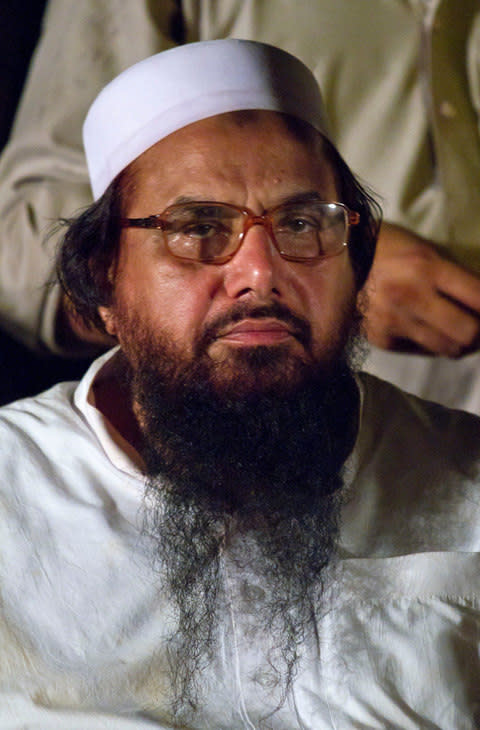Pakistani militant alleged to be mastermind of Mumbai attacks launches new political party

A 68-year-old terrorist alleged to be behind the worst massacre in India's recent history is to launch a political party in Pakistan, adding to tensions between the two countries ahead of the 70th anniversary of their separation.
A charity founded by Hafiz Saeed, who has a $10m US bounty on his head and is currently under house arrest, said on Monday that it plans to launch a political wing.
Mr Saeed is alleged to have masterminded dozens of attacks within India, including the 2008 Mumbai attacks that killed 164 people.
The newly-formed Milli Muslim League party will be headed by Saifullah Khalid, a religious scholar and longtime official of the charity, Jamaat ud Dawa (JuD).

Gopal Bagley, a spokesman for India's Ministry for External Affairs said it was concerning that "a person who has traded in bullets to take human lives is now trying to hide behind ballots."
Mr Saeed has a history of shape-shifting. After the terrorist group he founded, Laskhar e Taiba (LeT), was banned by Pakistan's government in 2001, he established JuD, which has taken root in the country despite being designated a terrorist organisation by the United Nations.
Some believe Mr Saeed's turn to politics is backed by the country's powerful military, which has used LeT as a proxy in its conflict with India.
Having once reportedly said that Indians must be "cut" and "cut" until "they kneel before you and ask for mercy", Mr Saeed appears on posters for the Milli Muslim League, alongside a fleet of ambulances.
India is pressuring Pakistan's government to halt Mr Saeed's entry into politics. "It's Pakistan's obligation, obviously, to make sure that such individuals are not able to enjoy the freedom to conduct terrorist activities," said Mr Baglay.
For the past six months Mr Saeed has been held under house arrest, while Islamabad has also placed JuD on the sanctions watch list.
This crackdown comes as the country seeks to convince the Financial Action Taskforce, an international anti money-laundering body, that it remains committed to action against the financing of terrorism.
Bilal Farooqi, a journalist, tweeted "the establishment" - a typical code-word for the army - "continues to believes Pakistan's strength lies in radical Islamist elements," in response to promotional material for the Milli Muslim League.
Although JuD's charitable work has made it popular in Pakistan, "out-and-out jihadist parties have never performed well in Pakistani elections," said Shashank Joshi of the Royal United Services Institute. "This is more about giving legitimacy to a violent organisation than taking power through the ballot box."

